California
Newsom vetoes Recovery Incentives Act, the meth & overdose crisis bill
So many people across California are dying from meth overdoses, disproportionately LGBTQ people and people of color
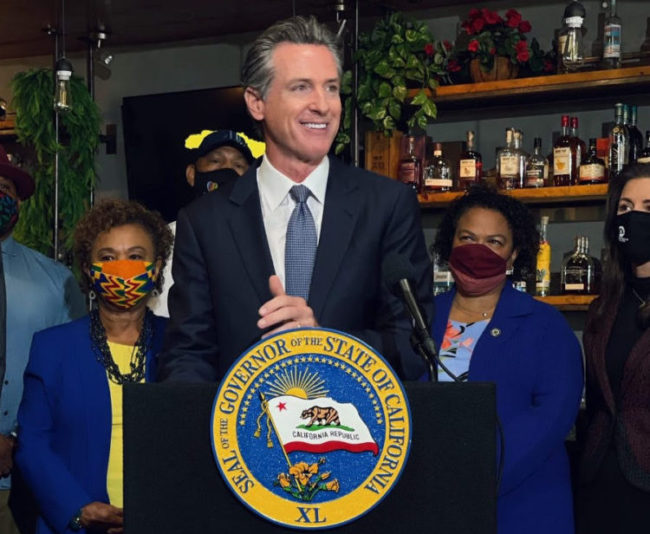
SACRAMENTO – California Governor Gavin Newsom announced Friday night that he had vetoed Senator Scott Wiener’s (D-San Francisco) legislation, Senate Bill 110, — which passed with unanimous and bipartisan support in both houses of the California State Legislature — aimed at confronting the growing methamphetamine addiction crisis facing California.
In an text message to the Blade after learning of the governor’s veto, Wiener said;
“I’m deeply disappointed that the Governor has chosen to veto SB 110. So many people across California are dying from meth overdoses, disproportionately LGBTQ people and people of color. And they’re dying right now. Time is of the essence. We know from more than a decade of data and experience that contingency management is highly effective in helping people stop using meth. Contingency management is a proven tool, and we don’t need pilot programs to tell us that. SB 110 would have made clear that contingency management is legal and would have allowed its implementation across the state. This veto is a setback in our effort to confront this epidemic.”
The Recovery Incentives Act aimed to legalize the substance use disorder treatment known as “contingency management,” and authorize Medi-Cal to cover it. Contingency management has proven to be the most effective method of treatment for methamphetamine addiction, and is frequently used as a treatment program by the Veterans Affairs Administration.
This intervention program gives those struggling with substance use disorder financial rewards if they enter substance use treatment programs, stay in the program, and get and remain sober. This positive reinforcement helps people reduce and even fully stop substance use.
“The meth crisis is devastating the LGBTQ+ community, and every day that we fail to act means more lives lost to this urgent, preventable epidemic. We are deeply disappointed by today’s veto, but we are committed to expanding access to this important program. We look forward to working with Senator Wiener to do so,” Equality California’s Executive Director-designate Tony Hoang said.
In his veto message the governor noted:
This bill would require Medi-Cal substance use disorder services to include contingency management services as an optional benefit under the Drug Medi-Cal organized delivery system, subject to utilization controls. Given the promise of contingency management as a treatment for stimulant use disorders, the 2021-22 Budget includes funding to support a pilot
contingency management Medi-Cal benefit from January 2022 through March 2024.
The Department of Health Care Services has sought federal approval for this pilot project and will work expeditiously to implement it once it is authorized. The outcomes and lessons learned from the pilot project should be evaluated before permanently extending the Medi-Cal benefit. As such, this bill is premature, and I am returning it without my signature.
California
South Park provides green space to a predominantly Latino community
‘…the need for green spaces within Latino communities has never been greater, especially in South L.A.

South Park, one of the oldest parks in Historic South Central, has brought multi-generational Angelenos together for centuries.
The park sits at the intersection of 51st Street and Avalon Blvd, surrounded by some of the most socially, culturally and historically important locations in the country, including Central Avenue, site of the West Coast jazz scene in in the 30s and 40s, the former Black Panther Party headquarters in L.A and one of the epicenters of the Watts rebellion in 1965.
The park—also known as Barry White Park—was founded in 1899. Today, 126 years later, the park still stands—hosting weekend soccer games, señoras chismeando, recreational activities like swimming, card games among elders and city-led events.
The park was named after two-time Grammy Award winner and R&B singer Barry White, who grew up in South Central, just blocks away from the park.
As PBS initially reported, the City of Los Angeles purchased it from a private developer for $10,000. At that time it was not as big as it is now, but was always characterized by its tall palm trees.
The park is located in Los Angeles City Council District 9, where the population is predominantly Latino (79.9%). According to Park Equity, Life Expectancy and Power Building research, the need for green spaces within Latino communities has never been greater, especially in South L.A, where the landscape is often characterized by an overconcentration of liquor stores and a lack of quality and accessible recreational spaces. More than a century after the park’s opening, for many local residents, it is one of the only parks within walking distance for them.
Amanda Walker, 56, moved to L.A. from Chicago, Illinois. She said one of her favorite things to do at the park is to take in the sun.
“The sun falls perfectly anywhere through the park, that’s probably my favorite part,” Walker said.
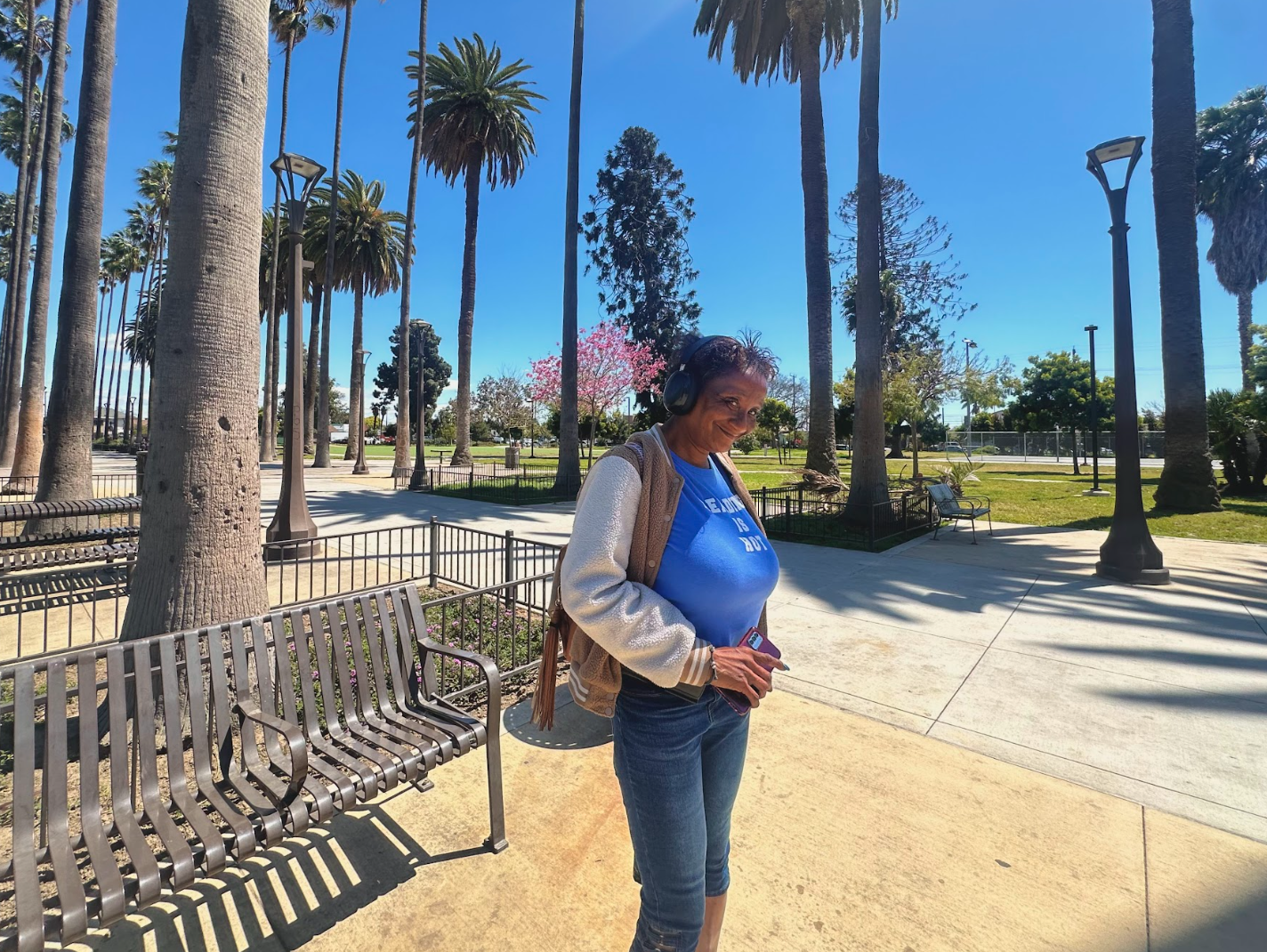
Amanda Walker at the park before meeting up with her friends. (Photo by Brenda Verano)
Walker said she loves coming to the park with her friends, who often use the park as a gathering place.
“I do wish there were more activities for adults,” she said. “The park has a playground for kids, and basketball courts… we need more things in the park for people like me.”
Maria L., 30, said she also comes to the park to be surrounded by nature. Although she lives in South Central, she said she does not have much free time to come as often as she would like.
“I haven’t been here in about eight months,” she said. Although she was alone, she was on a video call with her family where she was able to show them the scenery of the park and said she was surprised at how green and vibrant it all looked.
“I like coming here to just sit and hang out,” she said. She enjoys the sense of community she feels when being in the park. “Some people are walking their dogs; others are exercising or simply just laying down. It’s nice. I also like seeing the birds and the squirrels,” she said.

From a distance, Maria L. sits in the sun on the park benches. (Photo by Brenda Verano)
The relationship between access to parks and life expectancy are closely linked. Park deserts can have disastrous effects on residents as well as wildlife, as stated by a study conducted by the Prevention Institute in partnership with University of California, Los Angeles , the National Health Foundation, Community Coalition, Esperanza Community Housing Corporation and the Social Justice Learning Institute.
According to the research, South Central L.A. is considered to have “high park need” and “very high park need” neighborhoods, with an average of 1.6 and 0.7 acres of parkland per 1,000 residents, in comparison to the L.A. countywide average, which is 3.3 acres of parkland per 1,000 residents. The median life expectancy in South L.A. is 77 years, well below the level for the county as a whole. About 15 miles away, in the community of Beverly Hills, the life expectancy is about 90 years, 13 years higher.
South Central residents have been asking for more investment in parks and recreational facilities. In 2018, the 18.25-acre park went through a multi-million renovation, which allocated funding for the improvement of its gym, swimming pool, basketball and tennis courts, baseball diamond, outdoor stage, fitness area, picnic tables and children’s play area.
Despite the recent investments, the park has also been widely known for its gang and chrome activity, which the community says has been a direct effect of years of disinvestment and neglect.
In previous years, the Los Angeles Police Department identified the park as an area where gang activity—specifically from the Avalon Gangster Crips, Broadway Gangster Crips and 52nd Street Playboys—has been observed.
“The problem was scanned and revealed that this park, like many others in urban America, had slowly been neglected and overrun by criminal activity that revolved around gangs, narcotics and quality of life issues,” states the LAPD. “The analysis of the problem at the park was conducted by reviewing data, meeting with officers and receiving input from local community representatives and park staff members.”
Despite this, the community recognized the park as a long-standing historical entity of South Central L.A.
As one of the oldest parks in the city, South L.A. Park continues to be home to local residents, wildlife, street vendors, youth and all the great things that make up Los Angeles.
EDITORS NOTE: This article was published through the Bezos Fellowship grant provided by the Ethnic Media Services, which recently changed its name to American Community Media. The article was written by Brenda Fernanda Verano, an award-winning journalist who reports for CALÓ News, a local non-profit newsroom focusing on the Latin American community of Los Angeles.
Arts & Entertainment
LA Opera brings back Pride Night with a production of ‘Ainadamar’
Pride Night returns at the LA Opera

LA Opera is bringing back its Pride Night on Wednesday May 7, in partnership with the Opera League of Los Angeles.
LGBTQ members and allies will come together for Pride Night to indulge in a performance of “Ainadamar,” at the Dorothy Chandler Pavillion. The discounted tickets for Pride Night include access to a complimentary post-show party at Vespaio hosted by the Opera League of Los Angeles, featuring Cal-Italian bites from Chef Agostino Sciandri.
“Ainadamar” is a tribute to Spanish poet and queer icon, Federico García Lorca.
“This season, we celebrate with ‘Ainadamar,’ a powerful tribute to Spanish poet and queer icon Federico García Lorca. These pairings matter. They highlight that opera is a living, evolving art form—one that speaks to all people and reflects the diversity of the world we live in,” said Christopher Koelsch, president and CEO of LA Opera.
The central plot of “Ainadamar,” which is the Arabic meaning for ‘fountain of tears,’ follows Ana María Martínez as Margarita Xirgu, an actress who spent half of her career portraying Mariana Pineda, who was a 19th-century Spanish liberalist heroine, in Lorca’s play. Pineda was a political martyr who was executed for embroidering a flag with the slogan “Equality, Freedom and Law,” in protest of the absolutist Spanish regime.
The production, running at approximately one hour and 20 minutes, sets the stage with a throwback, recounting Lorca’s life and his last days in the Spanish Civil War.
“At the heart of our Pride Night celebration is the belief that everyone should feel seen onstage and off. Opera is a space for community and belonging, where our audiences can recognize themselves not only among fellow attendees, but also in our artists, our music and the stories we tell,” said Koelsch.
This major company premiere, led by resident conductor Lina Gonzáles-Granados, is sung in Spanish, with English and Spanish subtitles. Grammy-winning composer Osvaldo Golijov produces the dramatic, flamenco-inspired score that meets the poignant libretto by David Henry Hwang.
During the COVID-19 shutdowns, live performances at the LA Opera were put on hold and the journey to bring back Pride Night, among many other in-person performances, was a struggle filled with many moving parts.
“COVID-19 suspended live performances across the board and during our return season we were navigating the different timelines for audiences returning to live theater. It was very much a matter of listening to our community and learning what had changed for them as well as us: some opted for livestream options, others preferred only outdoor events, and so on,” said Koelsch. “Once we found our stride, we were excited to bring back Pride Night the following season during ‘The Marriage of Figaro.’”
This year the LA Opera is celebrating their 40th anniversary by launching their 40th Anniversary Campaign to raise resources needed to continue funding their organization.The show opens on Saturday, April 26 and runs through May 18. Purchase tickets by clicking here.
California
Running, racing, dodging: Janelle Kellman on her bid to be California’s next Lieutenant Governor
Kellman says that she wants to use the position to tie together responsible growth and addressing the affordability crisis

Janelle Kellman is used to running marathons, which comes in handy as she campaigns to be
California’s next Lieutenant Governor – a campaign she began in 2023 for an election
that won’t happen until November 2026.
“The secret to being a true runner is consistency and discipline,” she says. “Nobody will
outwork me. I am not career politician. I am somebody who is gonna roll up my sleeves
and do all of the hard work.”
If she wins, the environmental lawyer and former mayor of Sausalito will make history
as the highest-ranking LGBTQ person elected to statewide office in California. But Kellman says she’s no climber. She’s putting a large stock of her campaign on the fact that she’s not a Sacramento insider and she’s not planning to use the job as a springboard to some other, more high-profile job.
“Many people run for this position because they want to be something else. I’m not
trying to be something else. Actually, I really want to do this job,” Kellman says.
The Lieutenant Governor sits on the boards of all of California’s higher education
institutions and has a significant role in natural resources and economic planning
through membership on the State Lands Commission, Coastal Commission, and
Commission for Economic Development.
Kellman says that she wants to use the position to tie together responsible growth and
addressing the affordability crisis that has seen hundreds of thousands of people leave
the state.
“There’s three things we really need to be focusing on to address affordability crisis.
Number one more housing of all types. Number two, proper public safety policies and
keeping our families safe. And number three, better mental health programs, both to keep people off the streets and address the homelessness problem and to support our
children,” she says.
Meeting these challenges will require someone who can ensure that many different
parts of California’s government – from the education system, the housing approvals
process, to the legal system, the heath care system and more – are laser focused on
bringing down the cost of living, Kellman says.
“I’m a lifelong team sport athlete and I’ve always been the captain of all the sports, and I
see [being Lieutenant-Governor] very much as a unifying collaboration type role, right?
This is a role I specifically want because I like that dynamic. I am really drawn to the opportunity to bring experts together.”
Kellman is aware of the symbolism her serving as Lieutenant Governor as a queer
woman would have in 2025.
“Our rights are under attack nationwide, and I see it as more important than ever that
California continue to be a stronghold of equity and inclusion,” she says. “To have
somebody who represents a minority community at the helm of our government really
gives visibility to our issues and reinforces that Californian is a place that values equality
and inclusion.”
Still, on one of the thornier issues of queer inclusion, Kellman is noticeably aversive.
She was quick to scold the Gov. Gavin Newsom when asked to comment on his recent podcast where he mused that trans women competing in women’s sports was “deeply unfair.”
“I hope that he would aim to represent all members of the State of California. So, I
hope he continues to govern and not just have a podcast for the next couple of years,”
she says. “But it’s also an opportunity to remind voters and remind everybody, it’s much more than that. It’s about inclusion. It’s about education. It’s about mental health and wellness.
There are so many issues that affect people Nationwide and Statewide. We’ve got to
stay focused on the big picture.”
But does that mean that she would advocate for trans women athletes being able to
compete in women’s sports, particularly as the lieutenant governor has a role in higher
education, where this issue has been in focus?
“I think the role of the Lieutenant Governor as an individual who sits on many of these
boards is to ensure that all students are treated fairly, and all our young people feel safe,
whoever they are on college campuses. I think that is the number one. No matter your background, no matter your orientation. So I would apply that across the board to anybody on college campuses,” she says.
Given one more chance to clarify her position, Kellman dodges again.
“I think that we have bigger issues to be talking about in the United States and
California,” she says.
But Kellman is critical of the Democratic political establishment that has entrenched
itself in Sacramento, which she characterizes as impeding progress on California’s most
critical issues.
“We’ve become an obstructionist party, and we need to be a party that gets things
done,” she says. “I’ve been able to get a lot done even as a small town mayor, and I see
my fellow mayors be able to get things done at the local level, I want to raise that up so
that it happens statewide.
“Let’s be the party that gets things done. And let’s focus on this high cost of living first
and foremost,” she says.
Without invoking the specter of the word “efficiency” in today’s political climate, Kellman
is also eager to hold the establishment to account for solving the state’s problems.
“Where’s the accountability? Where’s the transparency? What is happening in real
time? Let’s take homelessness, right? We know that as a state from 2017-18 to now, we
spent 22 billion dollars on homelessness. And during that same time period, the number
of unhoused in California went up by a third. Now, what if we were actually demanding
accountability and transparency along the way?”
And she’s eager to hold herself to account in office, too.
“If this was the private sector, I’d get hired. Because we would say you know how to do
the job, you’re going to be held accountable. We need more of that.”
California
Two anti-trans bills fail to advance in California
AB 89 and AB 844 were aimed at banning trans women and girls from competing in women’s sports
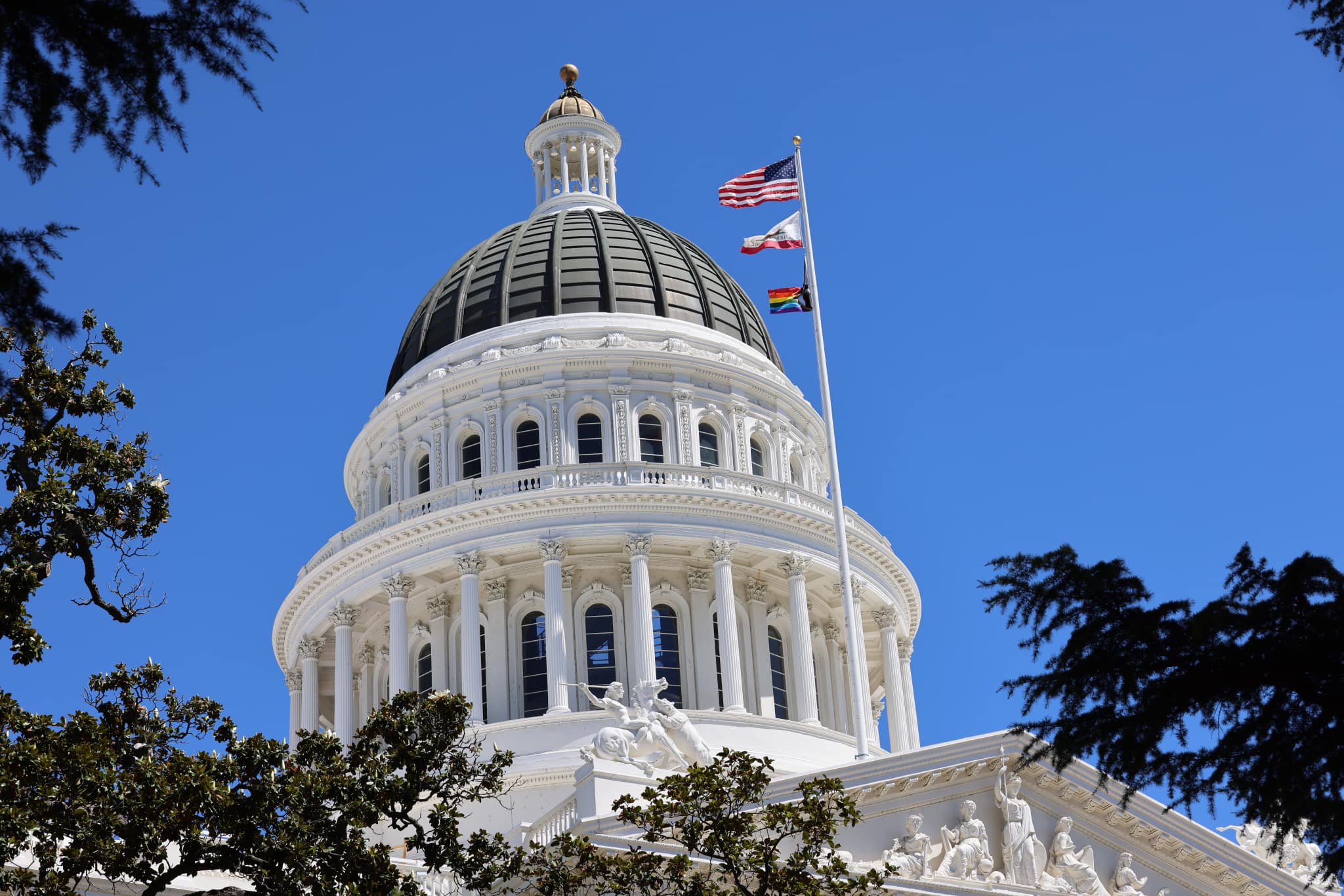
The two bills introduced by Republican lawmakers aimed at banning trans athletes from female sports, did not pass during yesterday’s committee meeting.
Assembly Bill 89 and Assembly Bill 844, have failed to advance in the Arts, Entertainment, Sports and Tourism Committee on Tuesday by a 2-6 vote on each bill. AB 89, introduced by Assemblymember Kate Sanchez (R-Rancho Santa Margarita) and AB 844, introduced by Assemblymember Bill Essayli (R-Riverside), were both rejected by California lawmakers.
“If these members and their counterparts were truly committed to addressing the inequities and safety concerns women and girls face—in sports and everyday life—they would be joining the frontlines in the fight for equal pay, stronger protections against domestic violence and sexual assault, and expanded healthcare resources,” said Tony Hoang, executive director at Equality California.
AB 89 and AB 844 are part of the nationwide coordinated effort led by extremists in Washington D.C. to sow fear and misinformation about transgender people—in particular youth—and attempt to erase them from virtually all areas of public life.
“Instead of tackling the real problems in our state like high inflation and rising healthcare costs, Assemblymembers Sanchez and Essayli continue to waste time and taxpayer money using transgender youth as political pawns in a shameful display of divisive politics and a thirst for attention.,” said Hoang.
AB 89 would have established a ban on athletes whose sex was assigned male at birth, from competing on a girls’ interscholastic sports team.
AB 844 would have reversed California’s law which currently allows trans athletes to participate in girls and women’s sports teams across all age levels, up to college level.
Tuesday’s hearing marked the first public debate on the issue in California since Newsom’s public comments about trans women in sports being “deeply unfair.”
On Friday, Gov. Newsom’s office confirmed it received a letter from U.S. Education Secretary Linda McMahon, stating that California could lose federal funds if it continued to allow trans athletes to compete in women’s and girls’ sports.
“As Secretary of Education, I am officially asking you to inform this Department whether you will remind schools in California to comply with federal law by protecting sex-separated spaces and activities. I am also officially asking you to publicly assure parents that California teachers will not facilitate the fantasy of ‘gender transitions’ for their children,” she wrote in the letter.
Equality California continues their partnership with the Legislative LGBTQ+ Caucus and other legislative partners in an effort to combat the passage of bills like AB 89 and AB 844.
“We are pleased these bills have failed and are thankful to those lawmakers who opposed this dangerous legislation in committee, particularly to the committee chair, Assemblymember Chris Ward, for his leadership,” said Hoang.
California
GLAAD’s Latine Honors celebrates culture and identity with packed house

GLAAD’s Spanish-Language & Latine Media created and produced the first Latine Honors, nearly blowing the roof off of Grandmaster Recorders in Hollywood, with a more-than-packed house full of stars.
The Latine Honors were created to celebrate the best in queer, Latine visibility and representation in entertainment media, advocacy and journalism. This event happened back-to-back-to-back with the GLAAD Black and Brown Honors and the 36th GLAAD Media Awards.
The Latine Honors were hosted by the hilarious stand-up comedian Roz Hernandez, who continues to make waves in the Los Angeles comedy scene and beyond.
“Every single time [GLAAD] calls, I answer,” said Hernandez on the carpet.
Hernandez says she is very lucky to be acknowledged by GLAAD and to join forces with them in the work they do for the LGBTQ+ community.
The Spanish-Language Special Recognition Awards were presented on stage by Harvey Guillén to “The Q Agenda,” a TV series on Latin Nation and “La Verdrag,” a news show on Canal Once, for their incomparable contributions to queer, Latine representation in media.
LA Blade had the chance to interview some of the Latine stars that graced the carpet to offer their two cents on issues affecting the LGBTQ+ community, including Harvey Guillén, Vico Ortíz, David Archuleta and members of “The Q Agenda.”
“I think now more than ever, it’s important for us to remember that we can’t be numb to the things happening around us,” said Guillén. “People are becoming less empathetic toward our community and other communities being attacked, so we have to remember to not lose focus. Do not lose focus and do not lose empathy.”
We also had a chance to catch up with Ortíz on the carpet. They are currently hosting a daily LGBTQ+ news podcast with Nay Bever, where together, they tactfully deliver the news that is relevant to our communities.
“I am co-hosting a daily news podcast called ‘Today in Gay,’ where we wake up everyday, we read the news and then report them to our queer community,” said Ortíz. “It’s quite a responsibility, but I’m also really honored to deliver [the news] with care and tenderness and tact.”
Ortíz was an honoree at the Latine Honors for their outstanding contributions to the media and entertainment industries as a Puerto Rican, non-binary, multi-hyphenated artist.
Archuleta spoke to us about his latest single Créme Bruleé, which incorporates a Latin flare to a pop tune.
“I’m so excited because I just released a new song, Creme Bruleé” said Archuleta. “I was really inspired by the pop girlies – Chapelle, Sabrina, Charlie [XCX], Billie [Eilish], and I just thought I wanted to channel that and I want to feel that confidence and that sexiness that I feel when I listen to their music, but I wanted to add a Latin flare to it.”
Keynote remarks were delivered by GLAAD President and CEO, Sarah Kate Ellis; welcome remarks were shared by Monica Tresandes, Senior Director of Spanish Language & Latine Media and Representation; and Gabe Gonzalez, host of GLAAD’s original ¡DÍMELO!, shared remarks about the attendees representing the Latine creators and media from across the industry.
California
Equality California to release 2024 Legislative Scorecard and rally at State Capitol
The rally will unite LGBTQ+ community members and political leaders
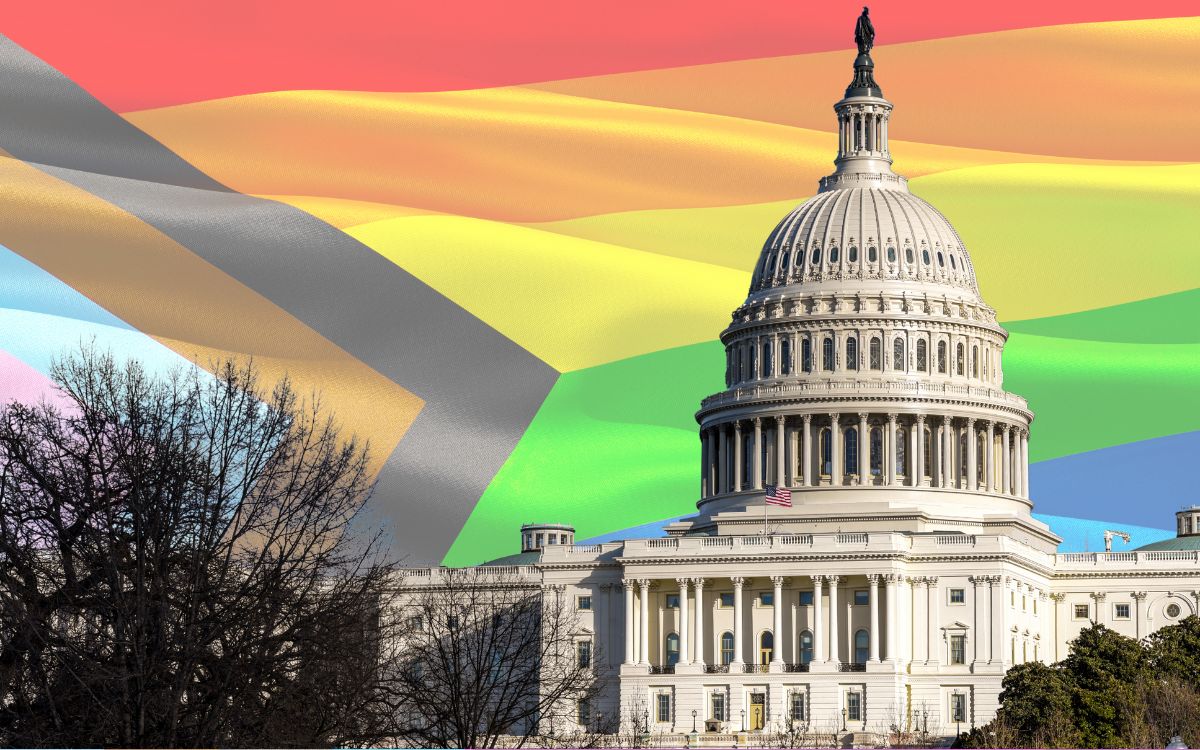
Equality California will hold a rally at the State Capitol’s West Steps in response to rising anti-LGBTQ+ political attacks on Wednesday, March 26 at 11:00 AM PT.
This rally will also serve as an opportunity to discuss the release of the 2024 Legislative Scorecard, which is a report of politicians and sponsored legislation that further and cement the protections of LGBTQ+ rights. The scorecard also analyzes voting methods and results, gathering an overall score that reflects legislators’ votes on EQCA-sponsored legislation.
Equality California is the nation’s largest statewide civil rights organization working towards bringing justice to LGBTQ+ issues by rallying against legislative issues that attack LGBTQ+ rights.
This call to action will serve as part of the organization’s annual LGBTQ+ Advocacy Day, held each year to bring together constituents with lawmakers in support of pro-LGBTQ+ legislation.
EQCA has a line-up of featured political speakers to include Assembly Democratic Caucus Chair Rick Chavez Zbur, Legislative LGBTQ Caucus Chair and Assemblymember Chris Ward, Legislative LGBTQ Caucus Vice Chair and Senator Caroline Menjivar, among others.
This event is meant to bring attention to the rise in political attacks, unite in community and mobilize efforts toward preserving LGBTQ+ rights for the state of California and beyond.
Breaking News
Family of Linda Becerra Moran, trans woman killed by LAPD after calling 911, files lawsuit
Moran was pronounced dead after three weeks on life-support

On Feb. 7, Linda Becerra Moran contacted the Los Angeles Police Department in a phone call where she reported that she was being held against her will in a San Fernando Motel.
At around 9:40AM, Moran called the Foothill Division of the LAPD, and was recorded stating that she was not only being held at the motel against her will, but that she was being forced to bring men into her motel room. In the audio call recording, she is heard crying as she answers the questions regarding her safety.
When the officers found her in the hotel room they stated that she didn’t remember how she got there, while speaking in Spanish to the officers.
The statement released regarding the officer-involved shooting says that ‘when officers arrived, they entered the motel room and met with Moran. During their investigation, Moran became agitated, armed herself with a knife and held it to her neck.’
The officers responded by drawing their guns, further agitating her. The attorney representing the family of Moran says the released video proves that the shooting was unlawful and unjust.
Now, the TransLatin@ Coalition is looking for justice for Moran and her family, especially considering that she was someone who received services directly from them. They hosted the first vigil for her on Friday, March 14, in front of the LAPD headquarters.
“Linda Becerra Moran, a trans immigrant who received services from our organization, was brutally shot and murdered by the Los Angeles Police Department. We held a vigil and we invited the community to join us in solidarity as we demand justice and honor Linda’s life,” said the TransLatin@ Coalition in a statement.
The police officer who shot and killed Moran was Jacob Sanchez, 24, who was hired in 2021.
Moran was pronounced dead after three weeks on life support in late February.
Somos Familia Valle, is hosting a poster-making event today from 2PM to 8PM where they will be preparing for a call to action. The call to action is scheduled for Saturday, March 22 at the Foothill Division Police Department, at 1PM. The organization posted a list of demands, along with their statement on Moran’s death.
“At a time where our trans siblings are being attacked politically and socially, now more than ever is the time for us to be loud and seek accountability,” reads the statement. “The murder of Linda Becerra Moran by the Los Angeles Foothill Division Police Department was unwarranted and speaks to the disregard for trans lives, but also the lack of de-escalation tactics.”
California
HRC criticizes Gavin Newsom for saying trans athletes should not be able to compete
Calif. governor made comments on Charlie Kirk’s podcast

The Human Rights Campaign issued a statement Thursday criticizing Democratic California Gov. Gavin Newsom, who said this week that allowing transgender athletes to compete in women’s sports was “deeply unfair.”
HRC President Kelley Robinson said, “When LGBTQ+ lives are under attack, real leaders don’t hedge — they fight. Across this country, extremists are stripping away rights, banning books, and targeting trans kids just for being who they are. This is not the time for political calculations or playing it safe — it’s time to be bold, to stand up, and to say unequivocally: We will protect LGBTQ+ people with everything we’ve got.”
She continued, “The fight for equality has never been easy, but history doesn’t remember those who waver — it remembers those who refuse to back down. Our message to Gov. Newsom and all leaders across the country is simple: The path to 2028 isn’t paved with the betrayal of vulnerable communities — it’s built on the courage to stand up for what’s right and do the hard work to actually help the American people.”
A longtime ally to the LGBTQ+ community, Newsom was one of the first public officials to officiate same-sex marriages in the early 2000s, which at the time drew criticism from leaders in his own party.
His remarks on trans athletes came during an interview with right-wing pundit and provocateur Charlie Kirk, on the inaugural episode of the governor’s podcast, “This Is Gavin Newsom.”
The move signals a possible shift in how Democratic leaders are positioning themselves on issues concerning trans rights, especially provided the speculation about Newsom’s plans to run for president in 2028.
Breaking News
Former fire chief Kristin Crowley loses fight for her position
Former fire chief loses appeal to be reinstated after being fired by Mayor Karen Bass

On Tuesday, the former Fire Chief of the Los Angeles Fire Department fought for her job to be reinstated through an appeal process that did not go in her favor. She will not get her job back, though she is expected to continue working for the department.
At the meeting, Crowley pushed back for the first time against the arguments Bass used to justify her termination. Crowley argued that she was facing retaliation for publicly highlighting a lack of resources at the department.
Going into the special meeting on Tuesday, she had to count on the support of at least 10 of the 15 councilmembers, or two-thirds. The appeal was almost certain to fail because she only counted on the support from Councilmembers Monica Rodriguez and Traci Park.
The main justification for her removal comes from Mayor Karen Bass, who claims Crowley allegedly made decisions that ultimately caused the Palisades fires to burn out of control.
”A thousand firefighters that could have been on duty on the morning the fires broke, were instead sent home,” said Bass in a previous press conference.
Crowley responded to her accusation.
“As for the 1,000 firefighters who were allegedly sent home prior to the fires, we did not have enough apparatus to put them on,” Crowley said. “Because of budget cuts and lack of investments in our fleet maintenance, over 100 of our fire engines, fire trucks and ambulances sat broken down in our maintenance yards unable to be used to help during the worst wildfire events in our history.”
At Tuesday’s meeting, Mayor Bass doubled-down on her claims, adding that Crowley allegedly refused to conduct an after-action report following the Palisades fire.
A claim that Crowley says is false.
“I did not refuse to conduct an after-action report,” said Crowley to the council. “And let me be clear, this is a false accusation.”
“During our discussions about an after-action report, I advised the fire commissioners about my opinion that was best in regard to how to use LAFD resources,” continued Crowley.
“I said that the LAFD is not capable, nor do we have the proper resources to adequately conduct an after-action report for the Palisades Fire.”
Bass was in Ghana when the Palisades fire broke out, leaving council President Marqueece Harris-Dawson as acting mayor. When Bass returned, she blamed Crowley for not warning her of the powerful Santa Ana winds that put Los Angeles at high-risk of fires before she left.
Back in January, Crowley took to the news media to talk about the lack of resources the fire department struggled with and that Crowley says ultimately caused the lack of response to the fires.
Councilmember Imelda Padilla, who represents the central San Fernando Valley, also publicly criticized Crowley for making the public announcement while the fires were still raging through Pacific Palisades.
The former fire chief also counted on the support of many LAFD firefighters who spoke in favor of her leadership skills and decisions.
Former Chief Deputy Ronnie Villanueva is currently serving as interim Fire Chief, as the search for someone to fill the position begins.
Breaking News
Mayor Karen Bass fired Kristin Crowley, now she’s fighting back
Former LAFD Chief Kristin Crowley stated that she is appealing her termination

The Los Angeles City Council originally scheduled Kristin Crowley’s hearing on Friday at 5 P.M. in Van Nuys, but is now rescheduled for Tuesday, following backlash from community members and firefighter representatives who say the timing of the Friday hearing was meant to bury the issue.
On Thursday afternoon, City Council members received an email from former LAFD Chief Kristin Crowley stating that she is appealing her termination.
“Today I notified the City Council of my appeal as provided for in Los Angeles Charter, Article V, Section 5.08(e), due to Mayor Bass’ removal of me on February 21, 2025, from the position of Fire Chief of the Los Angeles City Fire Department,” said Crowley in a statement.
The UFLAC is the union that represents LAFD firefighters.
“It is outrageous that the City Council has scheduled, on just 24-hour notice, a ‘special meeting’ for Friday at 5:00 P.M. in the Valley to hear Chief Crowley’s appeal of her dismissal,” said The United Firefighters of Los Angeles City in a statement.
In order to successfully appeal her termination, Crowley would have to count on the support of 10 of the 15 council’s members.
At least four council members stood alongside Bass at a news conference on Friday, announcing Crowley’s ouster — Council President Marqueece Harris-Dawson and members Curren Price, Hugo Soto-Martinez and Adrin Nazarian.
Crowley’s decision to appeal has already been publicly opposed by at least two council members, Monica Rodriguez and Traci Park.
“This is not transparent, fair, or just. It’s yet another public blunder coming out of City Hall that makes the people of Los Angeles continue to question the motives and trustworthiness of our city’s leaders,” said the union, criticizing City Hall’s decision to handle the issue.
This is a developing story and we will continue to report as more details become available.
-

 Arts & Entertainment4 days ago
Arts & Entertainment4 days ago2025 Best of LGBTQ LA Finalist Voting
-

 Bars & Parties2 days ago
Bars & Parties2 days agoBear World Magazine gives the bear community a mighty roar
-

 Features3 days ago
Features3 days agoMeet the new co-presidents of the NLGJA LA Chapter
-

 a&e features3 days ago
a&e features3 days agoAnthony Nunziata Performs the Great Palm Springs Songbook
-

 Bars & Parties4 days ago
Bars & Parties4 days agoRocco’s 2.0 is looking to the past to celebrate the future
-
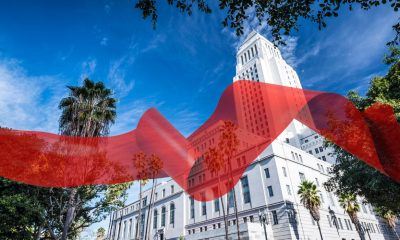
 Local5 days ago
Local5 days ago‘Housing Now!’: Advocates plan to wrap City Hall in red tape
-

 Congress3 days ago
Congress3 days agoDemocratic lawmakers travel to El Salvador, demand information about gay Venezuelan asylum seeker
-

 Events2 days ago
Events2 days agoCelebrate Lesbian Visibility Week with The Curve Foundation
-

 Commentary4 days ago
Commentary4 days agoOn Pope Francis, Opus Dei and ongoing religious intolerance
-

 The Vatican5 days ago
The Vatican5 days agoPope Francis dies at 88








